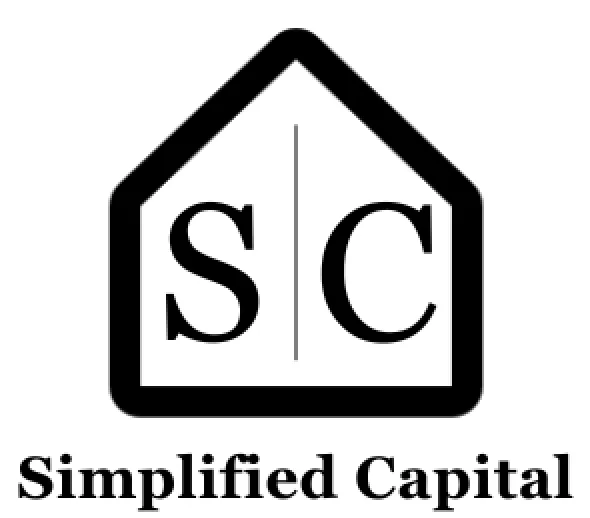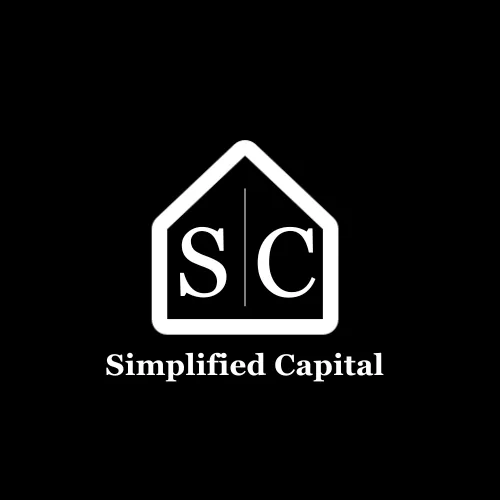Loan Programs
What Makes Us Different
At Simplified Capital, our unique advantage lies in our lean operational structure and deep expertise in select loan programs. This combination allows us to offer lower rates than many competitors, as we efficiently pass on the savings from our minimal overhead directly to our clients. We focus exclusively on loan programs where we have extensive experience, ensuring not just competitive rates but also expert guidance and a seamless process tailored to your specific needs. With Simplified Capital, you're not just getting a loan; you're unlocking value through our focused expertise and cost-effective approach.

Conventional Loans
A conventional loan stands out as a popular mortgage option not backed by the federal government, adhering instead to guidelines set by Fannie Mae and Freddie Mac, which are government-sponsored enterprises that play a significant role in the U.S. housing finance system by ensuring liquidity. These loans are favored for their flexibility, offering down payments as low as 3% for qualified borrowers, making them an attractive choice for many, including first-time homebuyers. One of the notable features of conventional loans is the requirement for Private Mortgage Insurance (PMI) when the down payment is less than 20%; however, PMI can be removed once equity reaches a certain threshold, potentially lowering the monthly payments over time. Conventional loans are subject to loan limits, which for 2023 are set at $726,200 for most areas and up to $1,089,300 for high-cost areas, distinguishing between conforming and non-conforming or jumbo loans. These loans can be used for a wide range of property types, including primary residences, second homes, and investment properties, and offer a variety of terms with both fixed and adjustable rates, providing a comprehensive solution for borrowers seeking versatility and efficiency in their mortgage options.

Frequently Asked Questions
Q:
What is the minimum down payment for a conventional loan?
The minimum down payment can be as low as 3%, making it an accessible option for many borrowers, including first-time homebuyers.
Q:
What is the minimum credit score for a conventional loan?
For a conventional loan, the minimum credit score required by most lenders is 620.

FHA Loans
FHA loans are government-backed mortgages insured by the Federal Housing Administration, designed to lower the barriers to homeownership. They are particularly appealing for first-time homebuyers due to their more lenient credit requirements and lower down payment options, starting as low as 3.5%. FHA loans also accommodate borrowers with higher debt-to-income ratios, making them a flexible choice for those who might not qualify for conventional financing. This inclusivity, combined with the potential for lower closing costs and the ability to use gifts for down payments and closing costs, makes FHA loans a popular pathway to homeownership for a wide range of borrowers.
Frequently Asked Questions
Q:
What is the minimum down payment for an FHA Loan
The minimum down payment for an FHA loan is 3.5% for borrowers with a credit score of 580 or higher. For those with credit scores between 500 and 579, the minimum down payment requirement increases to 10%.
Q:
Can I use an FHA loan for an investment property?
No, FHA loans are designed for owner-occupied properties only, meaning the borrower must live in the property as their primary residence. Therefore, you cannot use an FHA loan to purchase an investment property intended solely for rental income or resale. However, there is an exception if you buy a multi-unit property (up to 4 units) with the intention of living in one of the units while renting out the others.

Reverse Mortgage
A reverse mortgage allows homeowners aged 62 and older to convert part of their home equity into cash, without monthly mortgage payments. The homeowner receives payments from the lender, and the loan is repaid when the home is sold or the homeowner passes away. This financial tool can supplement retirement income, but it's important to consider the associated costs and impact on home equity.

Frequently Asked Questions
Q:
Can I get a reverse mortgage if I am 62 but my spouse is younger?
Yes, you can get a reverse mortgage at 62 even if your spouse is younger. The loan will be based on the age of the younger spouse, but protections are in place to allow the younger spouse to remain in the home under certain conditions after the borrower passes away. However, this may affect the loan amount available.
Q:
Can I get a reverse mortgage on an investment property?
With a reverse mortgage, the borrower must maintain the home as their primary residence. Moving out permanently or renting out the property can lead to the loan becoming due and payable. Temporary absences, like vacations or short-term medical care, are allowed within specific time frames.

Bank Statement Loan
A bank statement loan is a type of non-traditional mortgage designed for self-employed individuals or those with non-traditional income streams. Instead of requiring W-2 forms and tax returns to verify income, lenders review 12 to 24 months of bank statements to assess the borrower's cash flow and ability to repay the loan. This loan option offers flexibility for those who might not qualify for conventional loans due to the nature of their income documentation, providing an alternative path to home ownership or property investment.
Frequently Asked Questions
Q:
How do interest rates for bank statement loans compare to conventional loans?
Interest rates for bank statement loans can be higher than those for conventional mortgages due to the perceived higher risk associated with non-traditional income verification. The exact rate can vary based on the lender, the borrower's credit score, the loan-to-value ratio, and other factors.
Q:
What is the minimum down payment for a bank statement loan?
The minimum down payment for a bank statement loan is typically 10%, depending on the lender's requirements and the borrower's credit profile. Factors such as the loan amount, property type, and the borrower's credit history can influence the exact down payment percentage required.

DSCR Loan
A DSCR (Debt Service Coverage Ratio) loan is a type of investment property loan where the lender evaluates the property's ability to generate enough rental income to cover the mortgage payments and related expenses. The key metric used is the DSCR, which is calculated by dividing the property's annual net operating income by its annual mortgage debt service. This type of loan is particularly appealing to real estate investors because the approval process focuses more on the income-producing potential of the property rather than the personal income of the borrower, making it a viable option for investors looking to expand their portfolios without the constraints of traditional income verification methods.

Frequently Asked Questions
Q:
What is the minimum down payment for a DSCR loan?
The minimum down payment for a DSCR loan typically starts at 20% but can vary based on the lender's criteria, the borrower's creditworthiness, and the property's DSCR value. Some lenders may require a higher down payment for properties with lower DSCR ratios to mitigate risk.
Q:
What types of properties are eligible for DSCR loans?
DSCR loans are versatile and can be used for a wide range of income-producing properties, including single-family homes, multi-family units, apartment buildings, mixed-use properties, and commercial real estate. The key requirement is that the property generates rental income sufficient to cover the mortgage payments and related expenses.

Hard Money
Hard money loans are a type of short-term financing typically used in real estate investments, where the loan is secured by the property itself rather than the borrower's creditworthiness. These loans are favored for their quick approval process and flexibility, making them ideal for investors looking to purchase, renovate, and flip properties, or for those needing to act swiftly in competitive real estate markets. Hard money lenders focus on the property's value and potential rather than traditional financial metrics, offering a unique lending solution for projects that might not qualify for conventional financing.
Frequently Asked Questions
Q:
How fast can I get a hard money loan?
One of the key advantages of hard money loans is their speed of funding. Borrowers can often secure financing within a week or two, making them an attractive option for real estate investors looking to close deals quickly.
Q:
What is the typical duration of a hard money loan?
Hard money loans are short-term financing options, usually with terms ranging from 6 months to a few years, allowing investors to renovate and sell the property or refinance into a long-term loan.
Get in touch with us
Ready to simplify your mortgage journey? Reach out today, and let's start a conversation about your financial goals. At Simplified Capital, your dream property is closer than you think. Call, Text, or Email anytime. Or feel free to fill out the form and we will contact you!
Every consultation is a no pressure conversation meant to help you feel comfortable about your mortgage financing needs.
(305) 804-0557
Contact Me
© Copyright 2026. Simplified Capital LLC NMLS ID# 2574896. All rights reserved.
We do business in accordance with the Federal Fair Housing Law (The Fair Housing Amendments Act of 1988) and the Equal Credit Opportunity Act. It is illegal to discriminate against any person because of race, color, religion, sex, handicap, familial status, national origin, age, marital status, or because all or part of an individual's income comes from any public assistance program, or because the individual has in good faith exercised any right under the Consumer Credit Protection Act.

